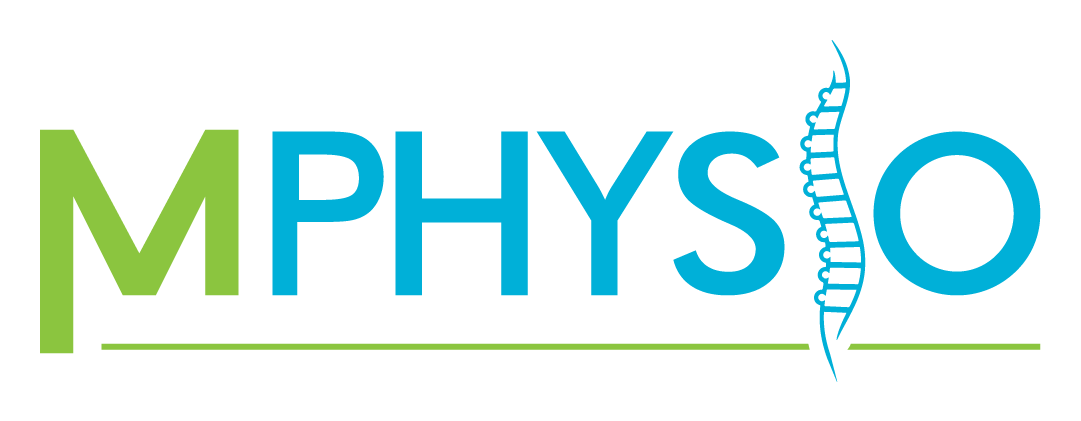What Is Treatment for Women’s Health?
At M Physio, we take a special interest in addressing the common issues women may deal with.
If you are expecting to have children your women’s health physiotherapist can assist you with pregnancy related conditions and can help with pre-natal and post-natal advice and treatment such as related back pain, swelling of your body causing carpal tunnel syndrome, and to prepare your body for pregnancy to ensure a smooth recovery.
You may also suffer from urge or stress incontinence. This is an area your general practitioner often suggests seeking out physiotherapists who can assist you and manage a plan that works toward improving quality of life.
Pregnancy
Pregnancy is a remarkable time of transformation, but it can also place significant physical demands on the body. Without proper care, these changes can result in a range of musculoskeletal issues that may persist during and after pregnancy.
At M Physio, we provide expert physiotherapy support tailored to each stage of your pregnancy journey—from pre-conception through to the postnatal period. Common concerns we address include:
- Lower back pain and pelvic pain
- Sciatica and nerve-related discomfort
- Neck and shoulder tension
- Carpal tunnel syndrome caused by fluid retention
- Headaches and muscular strain
- Urinary or faecal incontinence
- Diastasis recti (abdominal muscle separation)
Our pelvic health physiotherapists offer personalised treatment and education designed to prepare your body for childbirth, improve your comfort throughout pregnancy, and promote a smooth postnatal recovery.
We take a proactive approach to reduce the risk of long-term complications by helping you maintain strength, mobility and pelvic stability throughout each trimester.
Incontinence Issues
Urinary and bowel incontinence affects over 30% of women at some point in their lives. It is a common but treatable condition that can significantly impact confidence, daily function and quality of life.
At M Physio, our continence physiotherapists are experienced in identifying and treating the underlying causes of incontinence—whether it’s stress incontinence (leakage during physical activity), urge incontinence (a sudden, uncontrollable need to urinate) or mixed incontinence.
We use a detailed assessment process to evaluate pelvic floor muscle function, lifestyle factors and bladder or bowel habits. From there, we create a tailored rehabilitation plan that may include:
- Pelvic floor muscle retraining
- Bladder and bowel re-education
- Postural and core stability work
- Biofeedback techniques
- Lifestyle and behavioural strategies
Through our Optimal Health4Life pathway, many of our clients regain control, reduce or eliminate leakage episodes, and return to everyday activities with restored confidence and independence.
Pelvic Girdle Pain
Pelvic Girdle Pain (PGP) is a term used to describe discomfort and dysfunction in the joints and muscles of the pelvic region—particularly around the pubic symphysis at the front or the sacroiliac joints at the back. While it’s especially prevalent during pregnancy due to hormonal changes and altered biomechanics, PGP can also affect non-pregnant women following trauma, surgery or repetitive strain.
Symptoms may include:
- Hip pain, groin, lower back or thigh pain
- Discomfort when walking, climbing stairs or turning in bed
- Clicking or grinding sensations in the pelvic joints
- Reduced movement or instability in the pelvic area
At M Physio, we offer targeted physiotherapy treatments to relieve pain and improve function. These include joint mobilisation, muscle strengthening, pelvic alignment exercises, and personalised movement advice to reduce load on the pelvis.
Our goal is to help you stay active and comfortable—during pregnancy and beyond—by addressing the root causes of instability and dysfunction.
What Is Included In Women’s & Pelvic Health Treatments?
Strategies and implementations for Pregnancy and Incontinence issues are as follow:
- Tailored treatment plan through our Optimal Health4Life plan
- Pre-natal and Post-natal management programs
- Pelvic floor exercises to strengthen your pelvic floor and abdominal muscles to help incontinence and sexual discomfort
- Diastasis recti (abdominal separation) rehabilitation
- Bladder and bowel incontinence, including stress incontinence and urgency incontinence
- Pelvic floor rehabilitation, following childbirth or pelvic organ prolapse
- Addressing overactive bladder symptoms
Pelvic Floor Physiotherapy
Pelvic floor disorders are one of the most common issues that women’s health physiotherapists work to address. In fact, around 80% of women will experience pelvic girdle pain at some point in their lives.
While a lot of the work that pelvic floor physiotherapists take part in surrounds pre and postnatal care, there are a number of reasons why you may be experiencing pelvic floor dysfunction. These can include:
- Chronic constipation
- Hormonal Changes (such as menopause)
- Pelvic surgery
- Genetic predispositions
- High-impact activities
The pelvic floor muscles support organs in the pelvic region, including the bladder, uterus and rectum. These muscles play a crucial role in controlling bladder and bowel function, sexual function, and stability of the pelvis and spine.
If you occasionally leak urine when doing heavy lifting, star jumps or when you sneeze, you may be suffering from a weak pelvic floor.
As such, pelvic floor physios help you learn how to develop strong pelvic floor muscles. Strength in the pelvic area is vital for women in order to support the pelvic organs, maintain urinary and bowel continence, and provide stability to the pelvis and spine, and ultimately improve your overall pelvic floor health and quality of life.

FAQs About Treatment for Pelvic Health Conditions
Why does incontinence occur?
Faecal or urinary incontinence can occur due to weakness of the sphincter muscles responsible for closing the urethra. When this muscle is underactive and weak, pressure from laughing, coughing, exercising or sneezing can result in leakage of urine. In addition the bladder muscle can suddenly tighten, this can cause urge incontinence with an urge to urinate that you may not be able to control.
What does Pre and Post Natal mean?
Prenatal is the medical term given to describe the pregnancy time of ‘previous to birth’ or ‘before giving birth’. Postnatal or postpartum is the term given for the time which begins immediately after childbirth.
What complications are there during and after pregnancy?
Common complications include bladder and bowel dysfunction or incontinence, bladder or bowel prolapses, weakened pelvic floor muscle, back pain, sciatica pain, headaches, carpal tunnel syndrome, diastasis recti (abdominal separation), pelvic pain and even sexual discomfort just to name a few. These can all be treated and managed by a pelvic health physio. We are happy to discuss any and all pelvic health concerns you may have, providing you with the knowledge and exercises to maintain pelvic health.
What can I expect during my consultation?
In your first appointment, we will discuss your medical history, investigate the issues and health goals you want to achieve. We will gauge your level of control over the pelvic floor muscles and your experienced physiotherapist will discuss with you the recommended treatment plan which may include keeping a bladder diary, manual therapy, pelvic floor exercises, breathing techniques and how to respect your body’s recovery period during your daily routine.
You can expect a high quality of service with experienced and knowledgeable physios to help pregnancy related conditions and incontinence issues through pelvic health physiotherapy.
Is pelvic floor physiotherapy painful?
Pelvic floor physiotherapy is generally not painful, though some assessments or exercises may feel unusual, particularly if you’ve never engaged these muscles before. At M Physio, your comfort is always prioritised. We are able to assess how strong the pelvic floor is without performing an internal examination, by assessing/palpating the tummy region, as the Transversus Abdominus muscle is synergistic with the pelvic floor muscle. Our experienced pelvic health physiotherapists take the time to create a safe, supportive environment so you feel empowered, and not anxious, throughout your care.
How long does it take to see results from pelvic floor physiotherapy?
Most women begin to feel improvements within 3 to 6 weeks when following their tailored treatment plan. However, the exact timeline depends on the severity of the condition and consistency with recommended exercises. At M Physio, we work with you to develop a structured and achievable plan to strengthen your pelvic floor, reduce symptoms and restore your quality of life. Progress is tracked carefully so we can adjust the approach based on how your body responds.
Do I need a referral from my GP to see a women's health physiotherapist?
No, you don’t need a referral to see a pelvic health physiotherapist at M Physio. You’re welcome to book directly with us at any time. That said, if your GP or specialist has referred you, we’re happy to collaborate with your wider care team to ensure your treatment plan is integrated and aligned with any other medical advice you’re receiving. We frequently work with GPs who recommend our services for incontinence, pregnancy-related issues and pelvic pain.
Can I still do pelvic floor exercises if I’ve already had children?
Yes, and in fact, it’s often even more important to engage in pelvic floor training after childbirth. Many women only become aware of pelvic floor dysfunction after having children, as the muscles may have weakened or stretched during pregnancy and labour. We assess your current pelvic floor strength and create a rehabilitation program to help you regain control, improve comfort and prevent long-term issues like prolapse or incontinence—regardless of how long ago you gave birth.
What is diastasis recti and how do you treat it?
Diastasis recti refers to the separation of the abdominal muscles, commonly caused by pregnancy. This condition can lead to a noticeable bulge along the abdomen, lower back pain and core instability. We assess the degree of separation and guide you through safe and effective rehabilitation. This includes core activation techniques, breathing control, postural retraining and exercises that avoid further strain—so you can restore strength and confidence in your body over time.
Is pelvic floor physiotherapy just for women who have had children?
Not at all. Pelvic floor physiotherapy is suitable for all women—whether you’ve had children or not. Many of our clients are managing issues related to menopause, hormonal changes, pelvic surgery, high-impact exercise or chronic constipation. We take a personalised, non-judgemental approach to every assessment and treatment plan, ensuring you feel understood and supported in achieving long-term pelvic health—regardless of your life stage.
Will my sessions be private and confidential?
Yes, all sessions at M Physio are conducted in fully private treatment rooms. Your personal and medical information remains confidential at all times. We understand that discussing pelvic health can feel vulnerable, which is why we’ve created a welcoming and discreet space where you can openly talk about your symptoms and goals. You’ll be cared for by physiotherapists who are experts in women’s health, and who genuinely respect the trust you place in us.

